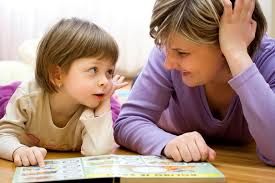
A baby is born with 100 million neurons. As they grow during their first three years they will grow trillions of brain-cell connections.
These years are critical brain growth period which forms the neurological foundation of skills that your child will use for the rest of their life.
Did you know that a toddler’s brain has twice as many neural connections than we do as adults?
Promoting brain development doesn’t mean that a child needs fancy store bought commercial toys to grow and develop.
They need stimulation. They require enriched, engaged experiences filled with language and interactions which provide opportunities for a baby’s brain the neural connections and pathways.
A child will often enjoy a box as a multitude of things. That’s the beauty of a child.
They can see many things by using their imagination and wonder.
New experiences and opportunities build upon established patterns and create new patterns and networks for more learning. These patterns and networks make connections within the brain which when repeated become permanent.
Rather than only having store bought toys and games it is much more beneficial to make your own activities through interactions and engagement with your baby.
Talking, singing, playing, eating, walking, reading, cuddling all support in brain development.
The important element is to engage a child’s interest and have it at the right level of challenge for them.
Strategies that promote brain development
- Talking- babies respond to cues.
- Be attentive and focused.
- Respond to a baby or child’s needs. Show interest in their world and them. Nurturing a child builds positive brain circuitry in the limbic area of the brain.
- Foster a love of books from an early age.
- Play games. Especially games with actions and involve movement.
- Chose toys that promote exploration and interaction. Toys with more than one option- that is more open ended are much more beneficial Toys with a cause and effect such as stacking blocks aids a child to understand and they will ;wire’ the information within their brain.
- Be clear and consistent. A baby’s brain develops when things are predictable and our responses are predictable.
- Positive guidance. Getting down to their level, maintaining eye contact, using appropriate tone and volume and being consistent, and reasonable with expectations are key.
- Use teachable moments where possible. For example displaying empathetic feelings, such as caring, sharing, etc promotes brain connections.
- Provide a variety of experiences and opportunities. For example sensory activities are crucial for brain development and understanding concepts and properties of materials.
Suggestions for activities to get started
- Do art and craft with the child.
- Talk to the child, involve them and encourage them to talk with you.
- Cognitive activities such as matching exercises.
- Books…..as well activity books or sticker books.
- Puzzles.
- Building…..blocks, boxes, construction toys.
- Board games.
- Story time and books.
- Cooking.
- Threading.






